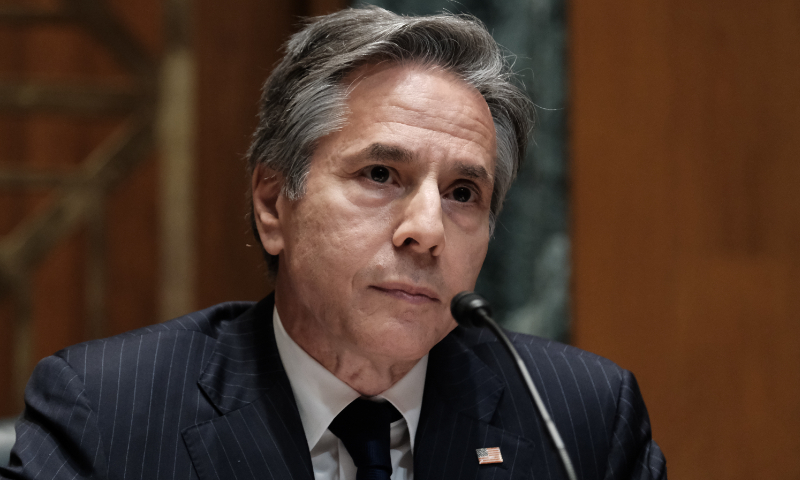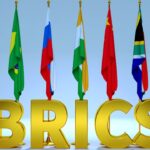US Secretary of State Antony Blinken just wrapped up his visit to South Pacific island countries. During the visit, he tried to sow discord between China and these countries. In recent years, such practices have become the must-do and highlights of the visits by US officials such as Blinken and US Defense Secretary Lloyd Austin. Nonetheless, Tongan Prime Minister Siaosi Sovaleni said he was not concerned about the large amount of money his country had borrowed from China; Foreign Affairs Minister of New Zealand Nanaia Mahuta shut the door on joining the AUKUS alliance; Prime Minister James Marape of Papua New Guinea said his country welcomes cooperation with China and that “USA does not need PNG’s ground to be a launching pad for any offensive anywhere in the world.” All these remarks have embarrassed the US. It can be said that Blinken and Austin have met “soft nails” in the South Pacific.
This is not accidental, because the US has encountered quite a lot of such “soft nails” in many other places across the world. For example, when the US went to Africa with a so-called aid plan to counter China, what it received was a vigilant response. When US Vice President Kamala Harris visited Africa earlier this year, President of Ghana Nana Akufo-Addo said, “There may be an obsession in America about Chinese activity on the continent, but there is no such obsession here.” In ASEAN, whether senior US officials go to ASEAN or Washington invites ASEAN to the US for a meeting, “not taking sides” is the basic principle repeatedly and publicly emphasized by ASEAN countries. In the Middle East and other places, the situation is the same. When the same situation occurs time and again, it is indeed necessary for the US to reflect on why this is the case.
In fact, the reason is very simple. It is difficult for a person who is unwilling to listen and respect others to be welcomed. The signal received by the US has been strong enough, that is, the world is unwilling to fall into division and confrontation, and hopes for more peace and cooperation. This has become a trend. Washington seems to have noticed these signals, but it still doesn’t pay attention. On the surface, it holds the bait of “cooperation,” but its heart is full of how to use these “cooperation” to undermine China’s influence. The similar scenes that appeared repeatedly during Blinken’s visit this time are enough to illustrate the deep-seated problems of the current US diplomacy. To put it simply, the goals of US diplomacy have formed a huge dislocation, or even contradiction and antagonism, with the vital interests of quite a number of countries.
Take the South Pacific countries as an example. These countries value peaceful and stable environment and sustainable economic development. In addition, due to geographical factors, South Pacific countries also pay special attention to climate change and marine environmental issues, such as Japan’s reckless plan to dump nuclear-contaminated wastewater. In these respects, China has been their most reliable partner. Now the US came to tell these countries that the pair of shoes they are wearing does not fit, take it off quickly, and put on the pair brought by the US. Whether the shoes fit or not, don’t the people who wear them know?
After all, people in any country want to live a peaceful life, and what meets this need is positive energy, otherwise it is negative energy. As some scholars have said, Washington today must adapt to a new reality: developing countries are becoming more mature and more capable of independent decision-making. When American officials make a visit, their pockets are often full of rhetoric to smear China that no one needs. Creating uneasiness and distrust between a country and its largest and most reliable partner is a despicable act, which is a scourge to the country and its people, and is life-threatening.
In recent years, in order to counter China, the US has launched various “grand” plans, but basically much is said but little is done. For example, the Build Back Better World in 2021 almost copied the China-proposed Belt and Road Initiative, but even the Americans called it a “Waterloo.” What’s more, even when the US invests in certain projects, most of them are either not feasible, or feed the pockets of those in charge.
These practices make the US look like a malicious bidder in the international community. It disrupts the normal cooperation of others, but it takes no responsibility for cooperation at all, allowing those projects to remain unfinished. Ultimately, it’s a mixture of hegemony and rogue thinking. Perhaps the US feels that it has big fists and is not afraid of anyone coming to hold it accountable. But what is certain is that if the US does not change this behavior, it will encounter more and more “soft nails.”
(Global Times)




